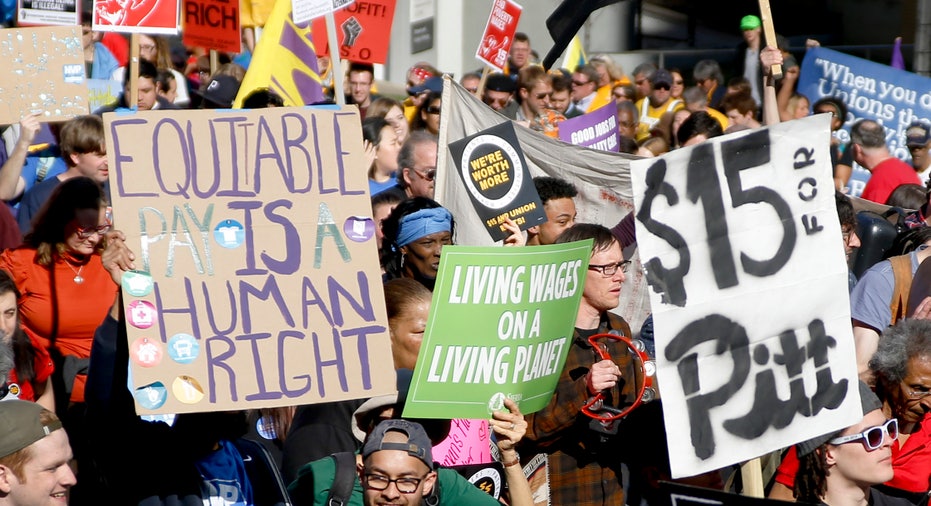4 States May Give Minimum Wage Hike Momentum

Voters in four states will decide Tuesday whether to approve substantial minimum wage hikes for workers.
Residents of Maine, Arizona and Colorado will vote on whether to increase minimum wage to $12 per hour by 2020, while voters in Washington state will consider a raise to $13.50 over the same timeframe. The outcome of those ballot measures is expected to impact how members of Congress – and the next president of the United States – handle the issue on the federal level in the coming years.
“Polling indicates that all four measures will pass easily. If that happens, we are likely to see more support in the next Congress to increase the federal minimum wage substantially,” Michael Reich, a professor of economics at the University of California-Berkeley who specializes in minimum wage research, told FOXBusiness.com.
The national minimum wage hasn’t been altered since 2009, when it rose from $6.55 to $7.25 as the last of three wage increases mandated by The Fair Minimum Wage Act of 2007. Both Republican presidential candidate Donald Trump and Democratic nominee Hillary Clinton support minimum wage hikes. Trump supports an increase to $10 per hour, while Clinton advocates a $12 federal minimum wage and a $15 rate in larger cities.
While advocates argue that the minimum wage should keep pace with rising costs of living, critics say an excessive increase would slow job growth and lead to layoffs.
“I’ve been opposed to minimum wage increases that kill jobs, and a lot of these state increases are to that level that they would kill jobs. I think that’s bad for American workers,” Andy Puzder, CEO of CKE Restaurants and economic advisor to Trump, said during an appearance on Fox Business Network’s “Mornings With Maria” on Sunday.
Economists are divided on whether minimum wage increases have a positive or negative effect on the economy.
A May 2016 study by the National Employment Law Project, a pro-worker advocacy group, found employment generally increased after federal wage hikes between 1938 and 2009. Conversely, a 2016 study by the American Enterprise Institute, an economic think tank, found that larger minimum wage hikes meant to keep pace with inflation had a significant, negative impact on employment compared to smaller wage hikes.
Separately, a study by UC-Berkeley found that a $15 minimum wage would cause job losses in the city of Los Angeles, but slight job growth in Los Angeles County.
Nearly three-fourths of Americans favor a minimum wage increase, according to a December 2015 poll by Pew Research. Approval in some or all of the four states considering wage hikes on Election Day could put pressure on lawmakers to adopt similar measures – especially if Clinton defeats Trump.
“If Clinton is elected, we can expect support from the White House for a bill in the next Congress along such lines,” Reich said. “Passage of these four state initiatives will add considerable momentum for such a bill.”



















